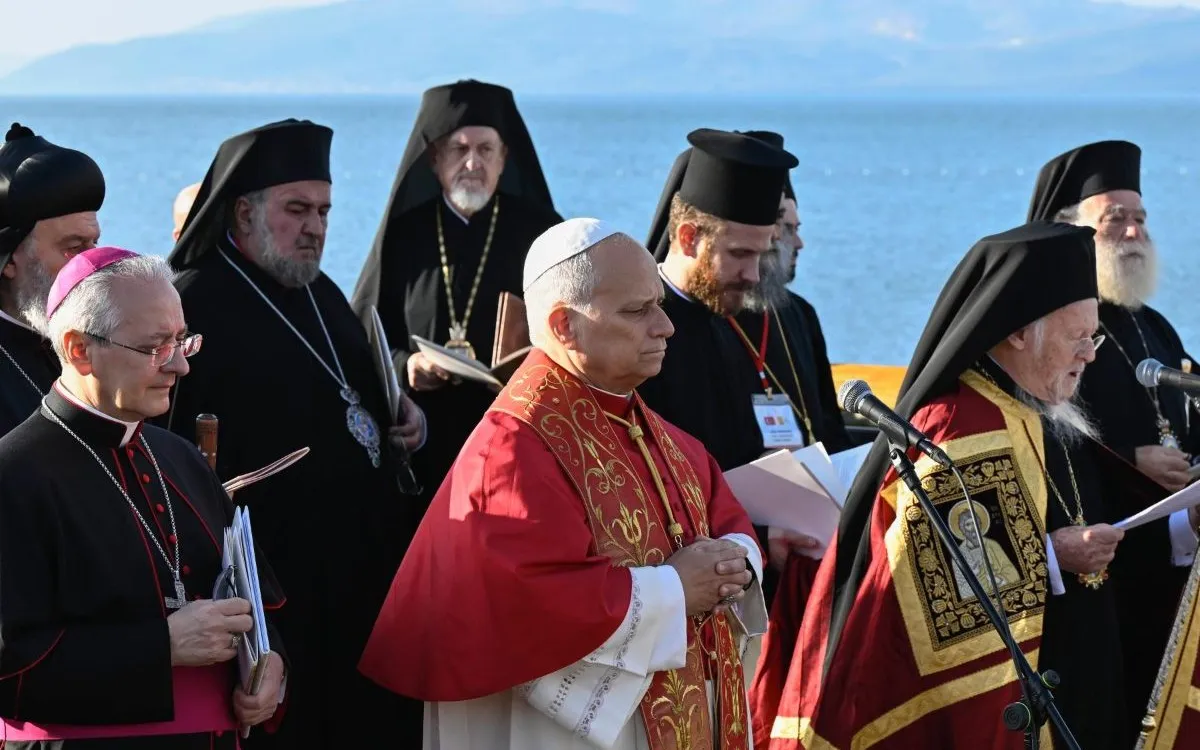
On a historic occasion, Pope Leo XIV joined around 27 other leaders of Christian Churches at the ancient site of Nicaea to commemorate the 1,700th anniversary of the First Ecumenical Council, a pivotal event in the history of the Church. This significant ecumenical prayer service took place on the second day of the Pope’s Apostolic Journey to Türkiye, underscoring the importance of unity among Christian communities.
In his poignant address, Pope Leo extended his gratitude to Patriarch Bartholomew I, the Ecumenical Patriarch of Constantinople, commending him for his “great wisdom and foresight” in bringing together Church leaders to celebrate this milestone anniversary. The Pope also expressed appreciation to the Heads of Churches and Representatives of Christian World Communions for their participation, emphasizing the collective effort towards unity.
Pope Leo recalled that the Council of Nicaea, held in 325 AD, invites all Christians to reflect on the question of who Jesus Christ is for them personally. He stressed the significance of this inquiry, particularly for Christians who might reduce Jesus to merely a charismatic figure. “This misrepresentation ultimately leads to sadness and confusion,” the Pope warned.
Highlighting the historical context, the Pope noted that the Council was convened to address the claims of the Alexandrian priest Arius, who argued that Jesus was merely an intermediary between God and humanity, denying His full divinity. “But if God did not become man, how can mortal creatures participate in His immortal life?” he questioned, emphasizing the importance of the Incarnation.
Pope Leo reminded the attendees that the Council of Nicaea established the Nicene Creed, a fundamental statement of faith that is now professed by all Christian Churches and Communities. This declaration serves as a “profound bond” uniting all Christians in their journey toward full communion. He quoted the Creed, stating, “Faith ‘in one Lord Jesus Christ, the Only Begotten Son of God, born of the Father before all ages... consubstantial with the Father’ is a profound bond already uniting all Christians.”
The Pope urged Christians to embrace this existing bond of unity, encouraging them to delve deeper into “adherence to the Word of God revealed in Jesus Christ, under the guidance of the Holy Spirit, in mutual love and dialogue.” By overcoming divisions and reconciling with one another, Pope Leo asserted that Christians can provide a more credible witness to Jesus Christ and His message of hope for all.
In a world rife with violence and conflict, Pope Leo XIV stressed the urgent need for Christian unity. He proclaimed, “The desire for full communion among all believers in Jesus Christ is always accompanied by the search for fraternity among all human beings.” He called for the recognition of the rights and dignity of all people, regardless of their ethnicity, nationality, religion, or personal beliefs.
The Pope highlighted the essential role of religions in promoting truth and encouraging individuals to engage in respectful dialogue. “We must strongly reject the use of religion for justifying war, violence, or any form of fundamentalism or fanaticism,” he stated. Instead, he advocated for paths that foster fraternal encounter, dialogue, and cooperation among all.
Concluding the commemoration, Pope Leo XIV prayed that God the Father may bless the 1,700th anniversary of the Council of Nicaea with “the abundant fruits of reconciliation, unity, and peace.” His heartfelt message resonates with the ongoing quest for harmony among Christians and serves as a reminder of the enduring significance of the Council's teachings in today's world.